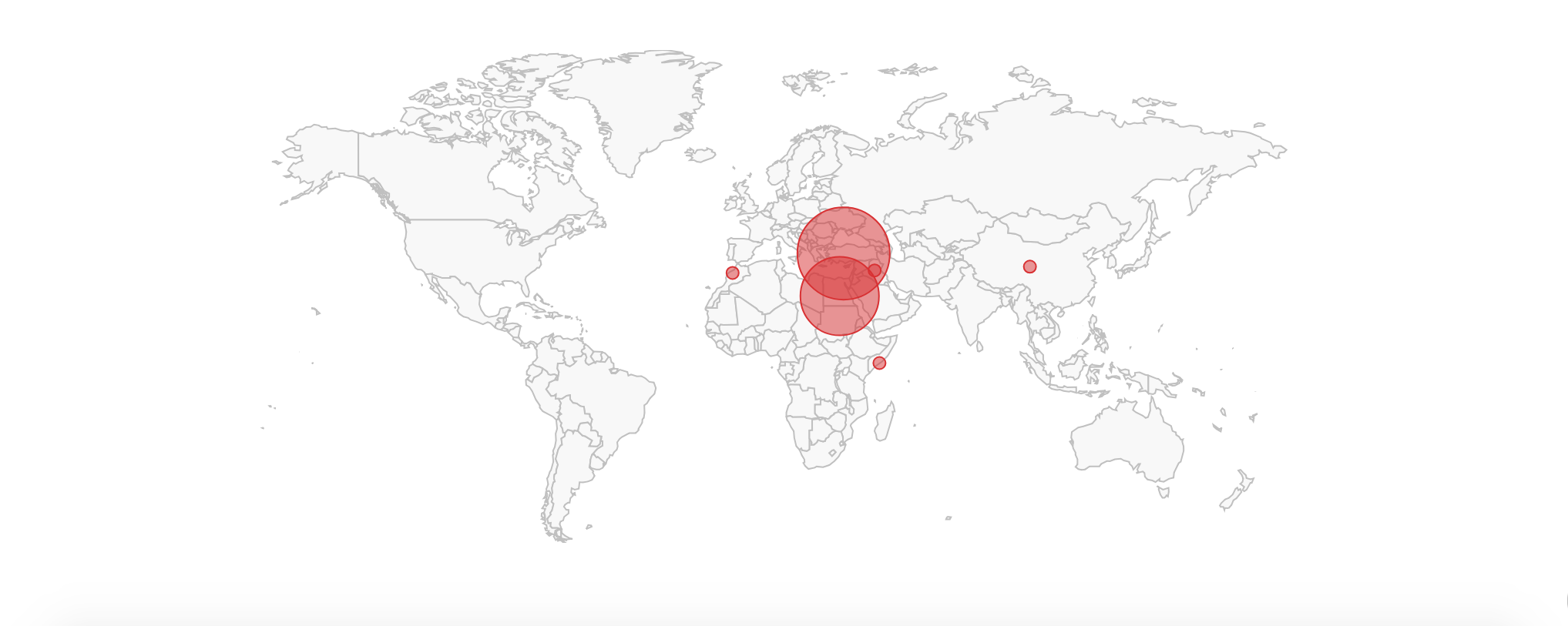Fact-checking politics in authoritarian countries
How are fact-checkers covering politics in countries with no press freedom? In an in-depth story for Poynter, Daniel examines existing projects in countries like Iran, Turkey and Zimbabwe to learn more about how they’ve critically assessed government promises while avoiding censorship — and what that means for prospective outlets in countries like China and Russia.
Some of the tips that existing fact-checkers have for new ones in repressive regimes include establishing your headquarters abroad, using alternative social media channels and having a transparent methodology. Know of another fact-checking project we missed in our story? Email factchecknet@poynter.org.

Research you can use
- A Berkeley professor who studies how political information spreads across Twitter recently became a victim of political information that spread across Twitter.
- In “How Science Created Morons,” WBEZ looks at the “terrible consequences” of research that is really, really wrong.
- What’s your favorite fake news? A University of Zurich scholar — who studied fake news in the U.S., U.K., Austria and Germany — says it all depends where you live.
This is how we do it
- In France, Libération’s Désintox is now CheckNews — an on-demand fact-checking platform aimed at giving readers answers to questions immediately. The project has migrated back to Libé’s main site.
- Want to brush up on your fact-checking skills? Register for this free, one-hour Poynter webinar on the best tools for verifying information online.
- Here are some tips for newsrooms to prepare for the next onslaught of breaking news hoaxes.

This is bad
- The Committee to Protect Journalists has counted the number of journalists jailed on fake news-related charges in 2017.
- Household surveys might be getting less reliable. Statisticians are getting worried.
- Meet the Indonesian artist who’s “fooling the world” with his fake photos.
This is fun
- A viral post about Coachella was actually written by a 28-year-old man — not a woman named Kaycie Allen.
- Fact-checking Hollywood: The Verge looks at the Netflix documentary "Mercury 13."
- Keep your fake news radar up-to-date: Try the latest fake news quiz from this Utah radio station.

A closer look
- Crowdsourcing has some value for fact-checking but it still can’t scale, Full Fact's Mevan Babakar writes.
- Where is fake news headed? Just look at the history of advertising.
- GQ Magazine explains in detail how a viral conspiracy theory can so easily be created out of, well, nothing.
If you read one more thing
So about that credibility score Elon Musk suggested on Twitter… Alexios wrote a measured examination of four important questions it raises.
14 quick fact-checking links
- Papua New Guinea is threatening to block Facebook for a month while it weeds out fake users and studies the effects of misinformation.
- This review of Showtime’s new “Fourth Estate” says the series is an antidote to misinformation.
- A Trump cabinet member says she’s never heard the president mangle the truth and suggests the media “are blowing things out of proportion.”
- Does Facebook really care about fake news in India? Nope, says HuffPost.
- The Crime Report from John Jay College’s criminal justice program is doing some fact-checking. This week they tackle the “missing” migrant children story.
- Here's a contender for correction of the week.
- Who’s a good fact-checker? He’s a good fact-checker!
- Daniel Dale, the Toronto reporter covering President Trump, explains how The Star decides when to use the word “lie.”
- Harvard’s Shorenstein Center is hiring six research assistants to head up its new Information Disorder Lab.
- Dear Fam: Please stop spreading fake news on WhatsApp.
- Fast Company has an interview with the author of the Encyclopedia of Misinformation.
- Who can fix Facebook? You can.
- The New York Times has some lessons about ex-post fact-checking a story about a former member of the Islamic State.
- Agence France-Presse’s fact-checking outfit expanded to Brazil, Colombia and Mexico, growing Facebook’s fact-checking program there in the process.
Until next week,







